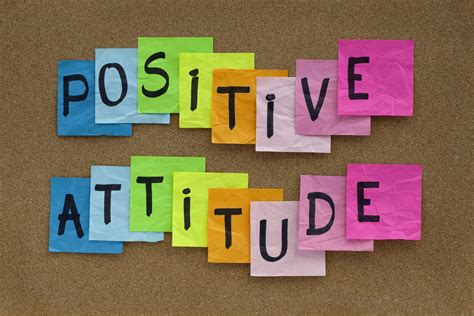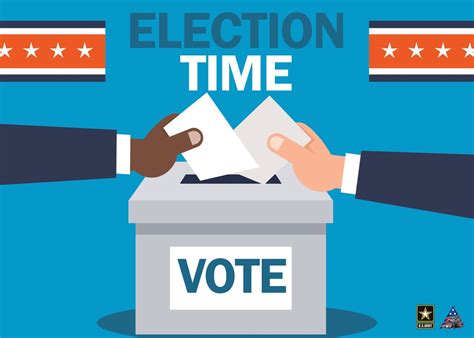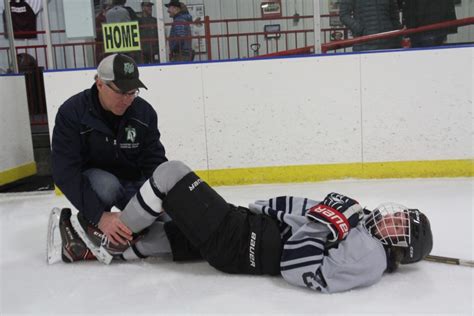Discover strategies to cultivate a growth mindset, manage competition stress, build resilience, set achievable goals, and foster a supportive team environment in hockey.In the high-intensity world of competitive hockey, maintaining a positive attitude can be just as crucial as technical skills on the ice. Athletes often face immense pressure, both from themselves and external sources, which can lead to stress and self-doubt. However, cultivating resilience, fostering a growth mindset, and developing effective techniques for stress management are essential for achieving not only athletic success but also personal well-being. This article delves into practical strategies for harnessing positivity, setting achievable goals, and creating a supportive team environment conducive to mental health. Whether you’re a player striving for excellence or a coach looking to uplift your team, these insights will empower you to navigate the challenges of competitive hockey with a winning mindset. Join us as we explore constructive approaches to ensure mental resilience on and off the ice.
How To Cultivate a Growth Mindset in Hockey
Having a growth mindset is crucial for hockey players, as it fosters resilience and the desire to learn from experiences. Here are several effective strategies on how to cultivate a growth mindset in your hockey journey:
- Embrace Challenges: Instead of shying away from tough situations, see them as opportunities to improve. Taking on challenges can enhance your skills and broaden your abilities.
- Learn from Criticism: Feedback is invaluable. Use constructive criticism as a tool for growth rather than taking it personally. Analyze the feedback and determine how to apply it to your game.
- Celebrate Effort, Not Just Results: Acknowledge your hard work regardless of the outcome. Recognizing effort reinforces the belief that persistence is vital for growth.
- Stay Curious: Maintain a desire to learn. Whether it’s studying game strategies or seeking guidance from coaches, keep an open mind towards new ideas and approaches.
- Visualize Success: Visualization can enhance your performance and confidence. Imagine successfully overcoming obstacles on the ice, which can help reinforce a positive growth mindset.
- Practice Humility: Accept that you don’t know everything and that there’s always room for improvement. This mindset can lead to continuous learning and development.
By integrating these practices, you can effectively develop a growth mindset that will not only enhance your performance on the ice but also contribute to your overall mental well-being in a competitive environment. Remember, the journey of improvement is ongoing, and embracing the process is key to long-term success in hockey.
Techniques for Managing Stress During Competitions
Competing in hockey can be exhilarating, but it can also lead to significant stress, impacting performance and mental well-being. Learning how to manage stress effectively is essential for athletes at all levels. Here are several techniques to help you maintain your composure during competitions:
- Breathing Exercises: Deep breathing techniques can help calm nerves. Try inhaling slowly for four counts, holding for four, and exhaling for four, repeating this cycle several times before games.
- Visualization: Picture yourself succeeding on the ice. Forming a mental image of a successful performance can boost your confidence and reduce anxiety.
- Mindfulness Meditation: Engage in mindfulness exercises to stay grounded in the present moment. Focus on your senses and the experience of playing rather than worrying about the outcome.
- Positive Self-Talk: Replace negative thoughts with affirmations that encourage confidence. Phrases like I am prepared or I can handle this can enhance belief in your abilities.
- Pre-Game Routines: Establishing a consistent warm-up or pre-game routine can help you feel more comfortable and reduce uncertainty about what to expect.
Implementing these techniques into your pre-competition ritual can greatly influence your mental state, allowing you to focus on the game rather than the pressures associated with it. By mastering how to manage stress, you enhance your ability to perform well and enjoy the game more fully.
| Technique | Benefits |
|---|---|
| Breathing Exercises | Reduces anxiety and promotes relaxation |
| Visualization | Boosts confidence and prepares the mind |
| Mindfulness Meditation | Enhances focus and decreases distractions |
| Positive Self-Talk | Increases self-belief and performance |
| Pre-Game Routines | Creates a sense of control and familiarity |
Incorporating these stress management strategies into your preparation can significantly improve your on-ice performance and overall mental health as a competitive hockey player.
Building Resilience: How To Bounce Back from Setbacks
In the competitive world of hockey, athletes often face setbacks that can be disheartening. Whether it’s a lost game, an injury, or personal challenges, developing resilience is crucial for maintaining a positive attitude. Here are some strategies on how to build resilience and bounce back stronger.
1. Embrace a Positive Mindset: Acknowledge that setbacks are a natural part of any sport. Instead of dwelling on failures, reframe them as learning opportunities. This shift in perspective helps in cultivating a growth mindset.
2. Reflect on Past Experiences: Analyze previous setbacks and identify what you learned from them. Understanding how you overcame obstacles in the past can empower you to tackle new challenges with confidence.
3. Set Realistic Goals: Focus on setting small, achievable goals to boost your confidence after a setback. These incremental successes will help you regain momentum and reinforce your resilience.
4. Develop a Strong Support Network: Surround yourself with encouraging teammates, coaches, and family who can offer support during tough times. Sharing your feelings and experiences can help alleviate stress and foster resilience.
5. Practice Self-Care: Engage in activities that promote mental well-being, such as yoga, mindfulness, or hobbies outside of hockey. Taking care of your physical and mental health is vital for recovery and resilience.
Remember, building resilience takes time and effort. By implementing these strategies, you will not only learn how to recover from setbacks but also emerge stronger and more focused in your hockey journey.
How To Set Achievable Goals for Positive Performance
Setting achievable goals is crucial for athletes looking to improve their performance and maintain a positive attitude in the competitive hockey environment. By focusing on realistic, attainable objectives, players can foster a sense of accomplishment and motivation throughout the season.
Here are some practical steps to help you How To set achievable goals:
Remember, achieving these goals will not only enhance your performance on the ice but will also contribute to a more positive outlook in competitive hockey. By knowing How To approach your objectives strategically, you’ll develop resilience and a more robust competitive edge.
Creating a Supportive Team Environment for Mental Wellness
In competitive hockey, athletes often face immense pressure, making it critical to foster a supportive team environment that prioritizes mental wellness. By setting a foundation of encouragement and understanding, teams can not only enhance their performance but also promote individual growth and resilience.
Here are several key elements to consider when creating a supportive team environment:
- Effective Communication: Encourage open dialogue among team members. Regular check-ins and discussions about mental health can help players feel more connected and less isolated.
- Team Bonding Activities: Organize social events outside of practice. This builds camaraderie and trust among teammates, making it easier for players to support one another during challenging times.
- Positive Reinforcement: Celebrate both individual and team achievements. Recognizing hard work and effort can significantly boost morale and motivate players to continue striving for growth.
- Access to Resources: Provide players with information about mental health resources and support systems available, such as counseling or workshops on coping strategies.
- Encourage Peer Support: Create an atmosphere where players feel comfortable seeking help from one another. Peer support can be incredibly beneficial in dealing with the mental challenges of competitive sports.
Establishing a supportive environment benefits everyone involved. By implementing these strategies, teams can learn how to nurture mental wellness, ultimately creating a healthier and more productive atmosphere for all players.
Frequently Asked Questions
Why is maintaining a positive attitude important in competitive hockey?
A positive attitude helps players to stay motivated, foster teamwork, and overcome challenges on and off the ice. It enhances mental resilience, which is crucial in a competitive environment.
What are some techniques to develop a positive mindset during games?
Techniques such as visualization, positive self-talk, and breathing exercises can help players maintain focus and positivity during high-pressure situations.
How can players manage stress and anxiety in competitive settings?
Players can manage stress by utilizing relaxation techniques, setting achievable goals, and maintaining a healthy work-life balance to ensure mental clarity.
What role do coaches play in fostering a positive attitude among players?
Coaches can cultivate a positive environment by encouraging open communication, acknowledging players’ efforts, and providing constructive feedback, which helps build self-confidence.
How can team bonding activities contribute to a positive atmosphere?
Team bonding activities enhance camaraderie, build trust among players, and create a supportive network, all of which contribute to a more positive team dynamic.
What should players do after a loss to maintain positivity?
After a loss, players should focus on learning from the experience, analyze what went wrong, and set new goals instead of dwelling on the defeat, which helps maintain a positive outlook.
Can having a positive attitude influence performance in hockey?
Yes, a positive attitude can significantly enhance performance by improving concentration, boosting confidence, and increasing resilience, which are all vital for success in competitive sports.









